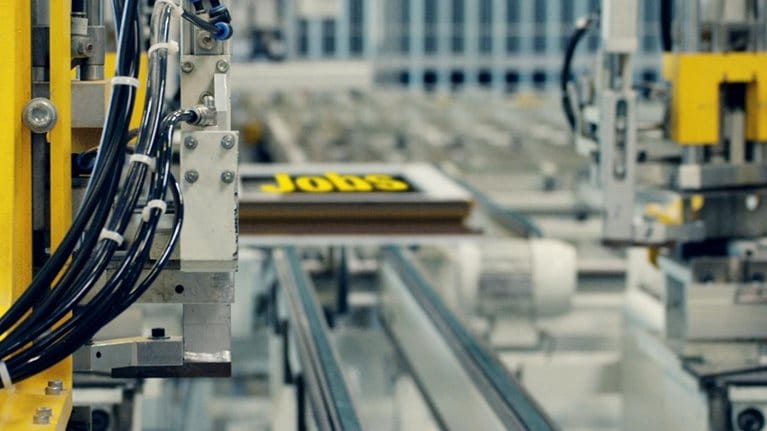Other videos in this series include:
- Why Thomas L. Friedman is optimistic
- An interview with Mother Nature
- Technology moves in steps
- Lifting people back into the middle class
- The three climate changes
Interview transcript
Thomas L. Friedman: I was born in 1953. Back in the ’50s, when people were running for office, back in Minnesota, there were a lot of one-word answers: raise taxes, lower taxes, more Social Security, more Medicare. Whatever.
James Manyika: Grow the economy.
Thomas L. Friedman: Exactly. I think that what is different about this moment, James, is if you’re running for office and you’re an honest politician, there are 100 different answers. It’s not going to be just one simple fix. What’s also scary is they change every year. In the old days, we could just sort of rely on “I’m a Democrat, that’s what this means. Let’s go down the list.”
Let me ask you a question. We’ll do a thought experiment, James. I’m a member of the steel union in Pittsburgh today. Monday to Friday, oh, man, I’m with labor. Solidarity, baby, solidarity. But on Saturday, I drive for Uber. And on Sunday I rent out my kids’ spare bedroom on Airbnb. And in the afternoon, I go to Walmart to get the cheapest Chinese-made goods I can. And what I can’t find there, I buy from a bot on Amazon.com. Monday to Friday, I’m with labor, baby. Saturday and Sunday, I’m with capital. So how do you have a party that spans those two interests?
James Manyika: Those interests actually vary even more. Let me add to your thought experiment. I would argue individuals are several things in a political economy. They’re consumers. They’re workers. They are savers or investors. They’re citizens. And then they’re human beings who live on a planet that’s prone to environmental and other change.
Thomas L. Friedman: Yes, good way to put it. I like this.
James Manyika: If you take all those parts of us, there was a time 50 years ago—
Thomas L. Friedman: They all lined up.
James Manyika: They all lined up. What was good for one is good for the other. They all largely lined up. Today, it’s unclear. Take globalization. It was wonderful for people as consumers. They could shop anywhere. They could get cheap products. Product cost of consumption went down dramatically. Great story. What about people as workers? Not so clear. What about people as investors?
Thomas L. Friedman: Fantastic, I could invest in the Zimbabwe stock market now.
Would you like to learn more about the McKinsey Global Institute?
James Manyika: Absolutely. I could invest anywhere. I could invest in anything. Look at the returns. So on the one hand …
Thomas L. Friedman: I like that a lot.
James Manyika: I may hate things as a worker. But as an investor, I may like what’s happening in the economy, in the stock market. Then there’s the person as a citizen. A worker is tied up in these global value chains. They’re not national. But a citizen is. For the most part, when it comes to people voting or participating, they tend to participate as workers. You can more closely correlate their voices as workers as opposed to as consumers. One of the challenges we now have is that the things that used to line up—whether it’s political parties or the interests of the individual—have all been taken apart.
Thomas L. Friedman: Exactly. And that’s why I tend to use the theme of nature as a much better framework for thinking about this moment we’re going through than political science.
James Manyika: How do you think about that? Now, if I’m a company or anybody in the market economy, I have to think about people as consumers, as workers, as citizens. I never had to think about that question before.
Thomas L. Friedman: Absolutely.
James Manyika: Some might even think that even the way we measure success needs to go much beyond just showing the value creation. One of the things that the Europeans have always done is, they’ve had more of a stakeholder model, where you’ve got labor and workers and everybody at the table. Is that to suggest that, in addition to the transparency, should market capitalism be moving more in that stakeholder direction?
Thomas L. Friedman: I find myself much more attracted to that Danish, Scandinavian model. I think it’s more relevant than ever. But when I total up everything we’ve been talking about, although it’s such a cliché, I always tell people, “We’re at a Gutenberg moment.” I believe we are at such a moment. And we just happen to be here when the printing press of the 21st century was invented. The internet and big data and AI was born. And it is changing everything.
That’s the common denominator in our conversation. It’s changing business. It’s changing citizenship. It’s changing communities. It’s changing countries. And therefore, unless you transform your party and your community to be a complex adaptive coalition that can respond at the speed of this change, when national governments can’t and the single family’s too weak, we’re all going to be in trouble. You and I could talk about what’s right. But that’s really what we need. It’s a different approach to thinking about all of these issues.
Watch the full interview, “Thomas L. Friedman and James Manyika: The world’s gone from flat, to fast, to deep.”


